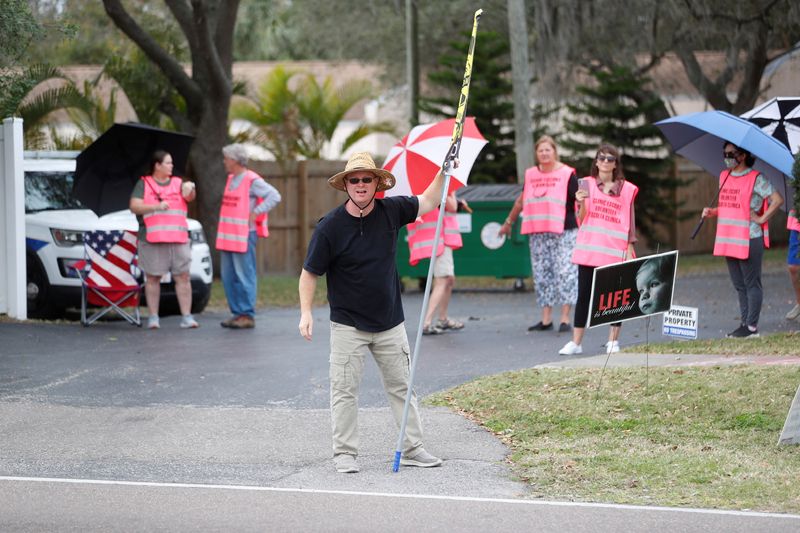By Daniel Wiessner
(Reuters) - A U.S. appeals court on Wednesday upheld a New York county's law barring anti-abortion activists from approaching people outside abortion clinics, teeing up potential review by the U.S. Supreme Court.
The Manhattan-based 2nd U.S. Circuit Court of Appeals said the law adopted last year by Westchester County, New York, was valid under a 2000 Supreme Court ruling that rejected a challenge to a similar law in Colorado.
The court said it was bound to follow that ruling unless the Supreme Court expressly overturns it.
Lawyers for the plaintiff, "sidewalk counselor" and devout Catholic Debra Vitagliano, acknowledged that their challenge was foreclosed by the Supreme Court ruling. But they have said in court papers that they intend to ask the high court to overrule that decision and strike down "buffer zone" laws.
The Westchester County law makes it illegal to get within eight feet of another person for the purpose of “oral protest, education, or counseling” within a 100-foot zone around a reproductive health facility. At least three U.S. states and several cities and counties have similar restrictions.
Lawyers for Vitagliano and Westchester County, which is just north of New York City, did not immediately respond to requests for comment. Vitagliano is represented by Becket Law, a conservative nonprofit that describes itself as advocates for religious freedom.
Vitagliano claims the Westchester County law is preventing her from approaching pregnant women outside of abortion clinics to discuss their options, in violation of her right to free speech under the U.S. Constitution.
In the 2000 case, Hill v. Colorado, the Supreme Court ruled that a nearly identical law was not a regulation on speech but "a regulation of the places where some speech may occur."
In Wednesday's case, Vitagliano has argued that Hill was wrongly decided and that it clashes with more recent precedent.

The Supreme Court in a 2014 case struck down a Massachusetts law establishing a 35-foot buffer zone around abortion clinics, but the court did not mention the Hill decision.
Last year, an Ohio-based U.S. appeals court temporarily blocked a Kentucky county's 10-foot buffer zone, citing the 2014 Supreme Court decision. A Philadelphia-based appeals court is currently considering a challenge to a 20-foot buffer zone adopted by Harrisburg, Pennsylvania.